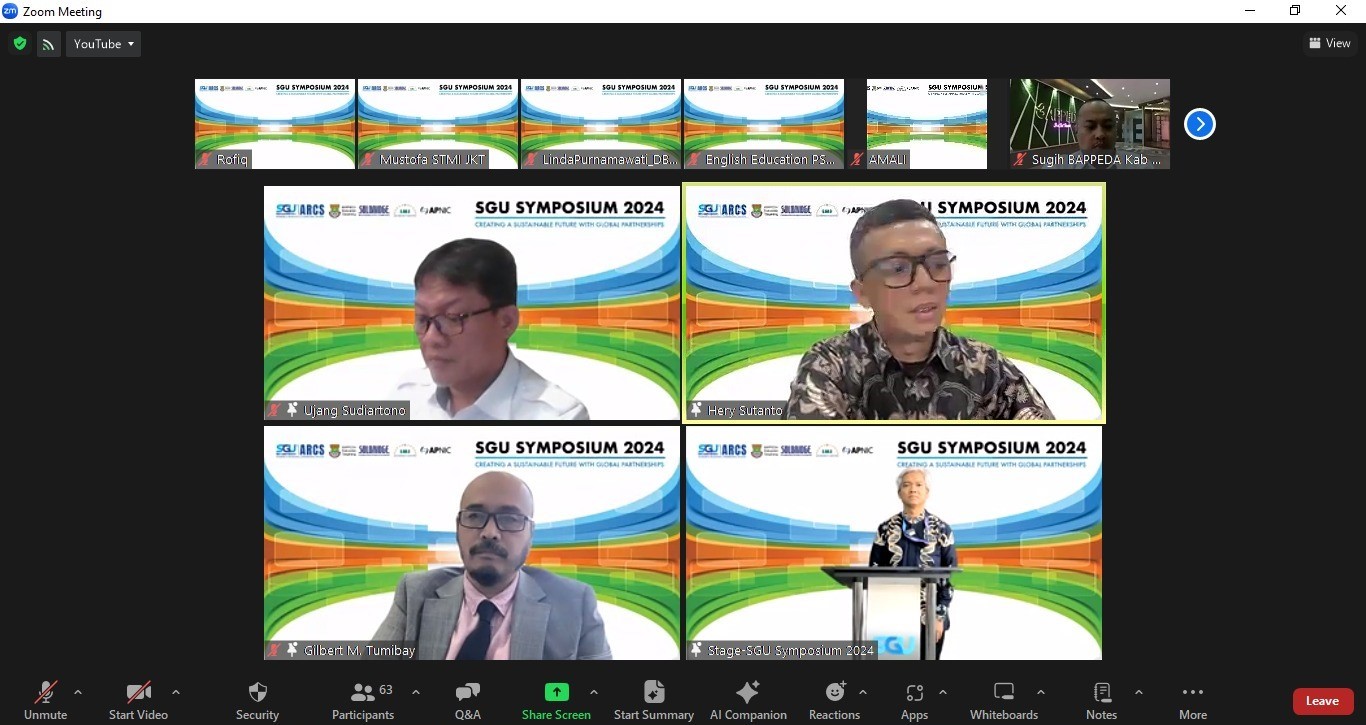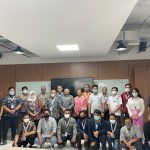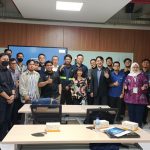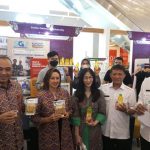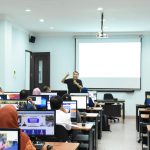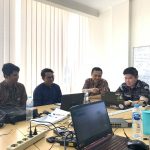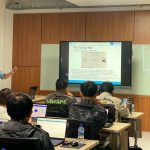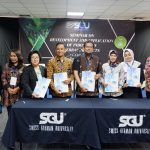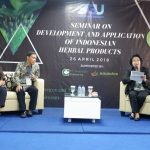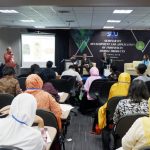Aditya Bhatara
On Wednesday, June 26, 2024, the ARCS Swiss German University (SGU) hosted the SGU Symposium 2024 with the theme “Creating a Sustainable Future with Global Partnerships.” Held online, this symposium provided a platform for SGU researchers to present their research and community service projects. The event aimed to foster collaboration, knowledge exchange, and innovation.
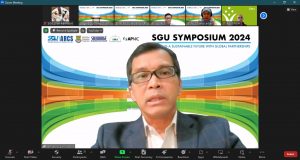
The symposium began with an opening speech by SGU Rector Dr. Dipl.-Ing. Samuel P. Kusumocahyo, who highlighted the importance of research and community service in advancing societal progress. The keynote speaker, Rajnesh Singh, CEO of The APNIC Foundation, delivered an inspiring address on the critical role of digital infrastructure and connectivity in supporting sustainable development and fostering global cooperation.
The symposium also featured engaging plenary sessions moderated by Dr. Hery Sutanto, S.Si., M.Si. The distinguished plenary speakers included:
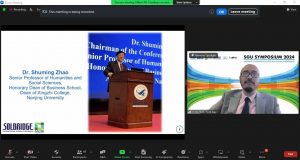
1. Prof. Gilbert Tumibay from SolBridge International School of Business (South Korea), who discussed the SolBridge initiative and its achievements in creating a sustainable future through global partnerships. Prof. Tumibay emphasized the importance of international collaboration in addressing global challenges and achieving sustainable development goals.
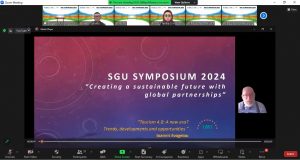
2. Ioannis Evagelou from the International Management Institute (Switzerland), who presented on “Tourism 4.0: New Era Trends, Developments, and Opportunities.” Evagelou explored how emerging technologies and innovative practices are transforming the tourism industry, creating new opportunities for sustainable development and economic growth.
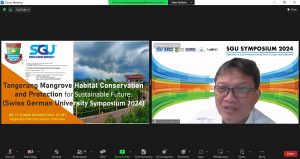
3. Dr. H. Ujang Sudiartono, ST, MT, Head of the Planning and Development Agency (BAPPEDA) of Tangerang Regency, spoke about conserving and protecting Tangerang’s mangrove habitats for a sustainable future. Dr. Ujang highlighted the ecological significance of mangroves and the need for concerted efforts to preserve these vital ecosystems.
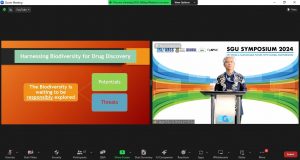
4. Kholis Abdurachim Audah, M.Sc, Ph.D, a member of the Food and Health Research Center at Swiss German University, discussed “Mangroves as a Model for Sustainable Drug Discovery from Indonesian Biodiversity.” Dr. Kholis’s presentation underscored the potential of mangrove ecosystems as a source of novel bioactive compounds for pharmaceutical development.
The symposium was structured into five breakout rooms, each dedicated to specific themes and moderated by experts to ensure smooth and productive sessions. The moderators included:
Edward Boris P. Manurung, M. Eng.
Dr. Maulahikmah Galinium, S.Kom, M.Sc.
Margaretha T.P. Linga, MM
Dr. Irvan Setiadi Kartawiria, S.T., M.Sc.
Sumini Salem, B.Sc., S.E., MBA, M.M.
These breakout sessions allowed participants to delve deeper into specialized topics, engage in meaningful discussions, and forge new collaborations. The interactive format encouraged researchers to share their findings, exchange ideas, and receive constructive feedback from their peers.
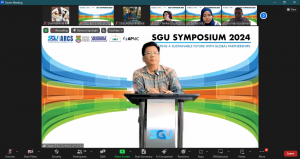
In his closing remarks, Assoc. Prof. Ir. James Purnama, M.Sc, Director of ARCS at Swiss German University, encapsulated the spirit of the symposium: “We hope that the connections and collaborations formed during this Symposium will pave the way for increased cooperation between local, regional, and global institutions. Let us continue to work together towards a sustainable future, leveraging the strength of our partnerships to achieve impactful and lasting change.”
The SGU Symposium 2024 succeeded in creating a dynamic and inclusive platform for researchers to present their work, explore new ideas, and build networks that extend beyond the virtual walls of the event. The symposium not only highlighted the innovative research being conducted at SGU but also underscored the importance of collaboration in addressing complex global challenges.
Moving forward, the insights and connections gained from this symposium are expected to fuel further research and initiatives aimed at sustainable development. By fostering an environment of collaboration and knowledge sharing, SGU continues to contribute to the advancement of science, technology, and community welfare.

